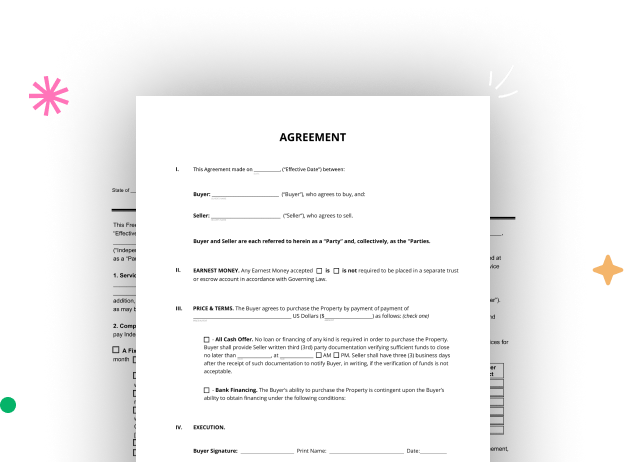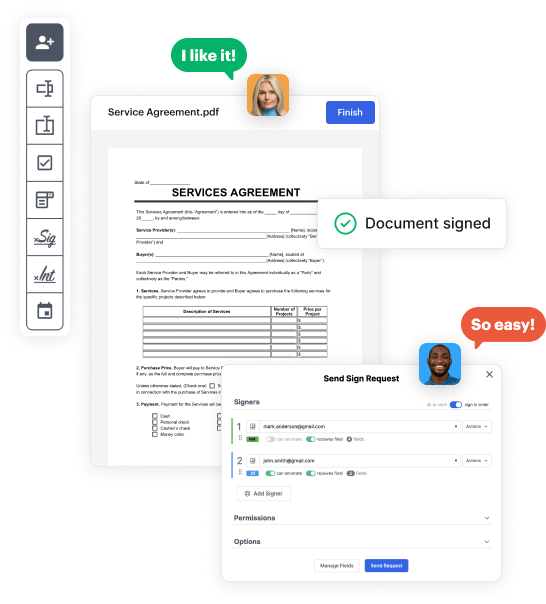

First, log in to your DocHub account. If you don't have one, you can easily sign up for free.
Once you’re in, go to your dashboard. This is your primary hub for all document-based tasks.
In your dashboard, click on New Document in the upper left corner. Hit Create Blank Document to design the Civil Union Will Form from the ground up.
Add numerous fields like text boxes, photos, signature fields, and other fields to your form and assign these fields to certain individuals as necessary.
Personalize your template by adding walkthroughs or any other necessary information using the text feature.
Thoroughly check your created Civil Union Will Form for any mistakes or needed adjustments. Make use of DocHub's editing capabilities to perfect your document.
After finalizing, save your copy. You can select to retain it within DocHub, transfer it to various storage solutions, or send it via a link or email.